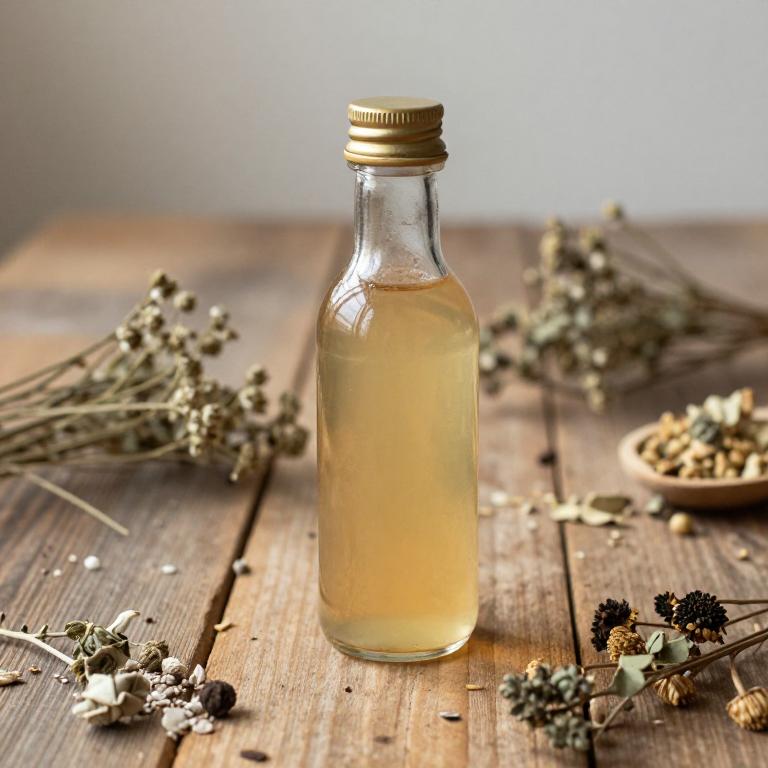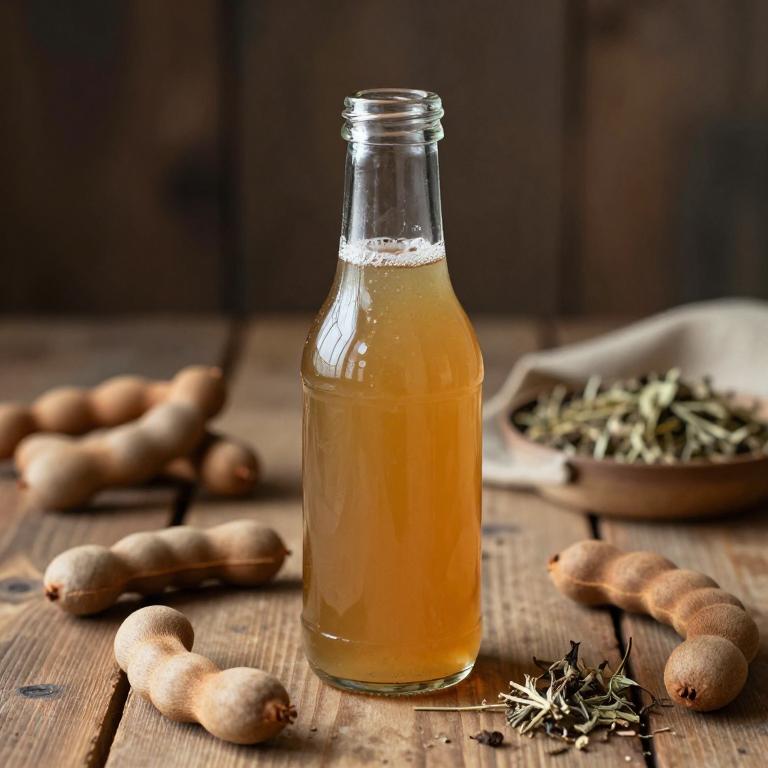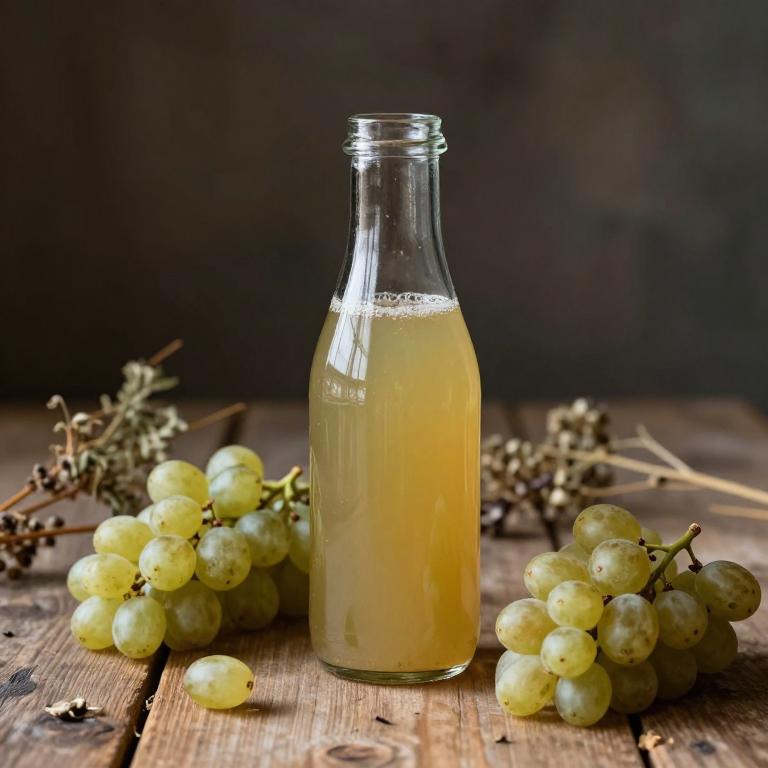10 Best Herbal Juices For Hyperpigmentation

Herbal juices have gained popularity as natural remedies for hyperpigmentation due to their antioxidant and anti-inflammatory properties.
Ingredients such as papaya, turmeric, and lemon are commonly used because they contain compounds like papain, curcumin, and citric acid, which can help lighten dark spots and even skin tone. Regular consumption of these juices may support skin health from within by promoting cell regeneration and reducing oxidative stress. However, it's important to note that while some studies suggest potential benefits, results can vary, and they should not replace professional dermatological treatments.
Always consult a healthcare provider before incorporating new herbal remedies into your routine.
Table of Contents
- 1. Turmeric (Curcuma longa)
- 2. Centella (Centella asiatica)
- 3. Thistle (Silybum marianum)
- 4. Aloe vera (Aloe barbadensis)
- 5. Dog rose (Rosa canina)
- 6. Chaste tree (Vitex agnus-castus)
- 7. Licorice (Glycyrrhiza glabra)
- 8. Blessed thistle (Cnicus benedictus)
- 9. Tamarind (Tamarindus indica)
- 10. Common grape (Vitis vinifera)
1. Turmeric (Curcuma longa)

Curcuma longa, commonly known as turmeric, has been widely used in traditional medicine for its potent anti-inflammatory and antioxidant properties.
When consumed as a herbal juice, curcuma longa can support skin health by reducing oxidative stress and inflammation, which are key factors in hyperpigmentation. The active compound curcumin in turmeric helps inhibit the production of melanin, thereby potentially lightening dark spots and even skin tone. However, it is important to note that curcuma longa should be used in conjunction with other skincare practices for optimal results.
As with any herbal remedy, it is advisable to consult a healthcare professional before incorporating it into your routine, especially if you have sensitive skin or existing health conditions.
2. Centella (Centella asiatica)

Centella asiatica, also known as gotu kola, is a traditional herb widely used for its skin-brightening properties.
Herbal juices made from Centella asiatica are known to help reduce hyperpigmentation by promoting skin renewal and enhancing collagen production. These natural extracts contain active compounds like asiatic acid and madecassic acid, which have anti-inflammatory and antioxidant effects. Regular consumption or topical application of Centella asiatica juice may help lighten dark spots and even out skin tone.
However, it is advisable to consult a dermatologist before incorporating it into a skincare routine to ensure safe and effective results.
3. Thistle (Silybum marianum)

Silybum marianum, commonly known as milk thistle, is a herbal remedy that has gained attention for its potential benefits in treating hyperpigmentation.
The active compound, silymarin, is believed to possess antioxidant and anti-inflammatory properties that may help reduce excess melanin production. When used in the form of herbal juices, silybum marianum can be applied topically or ingested to support skin health and even out skin tone. However, it is important to consult a healthcare professional before use, as it may interact with certain medications or have side effects in some individuals.
Overall, silybum marianum herbal juices offer a natural alternative for those seeking to address hyperpigmentation through holistic means.
4. Aloe vera (Aloe barbadensis)

Aloe barbadensis, commonly known as aloe vera, is widely used in herbal juices for its potential benefits in treating hyperpigmentation.
The gel extracted from the aloe plant contains various bioactive compounds, including vitamins, enzymes, and antioxidants, which may help reduce the appearance of dark spots and uneven skin tone. These properties make aloe vera juice a popular natural remedy for conditions like melasma and post-inflammatory hyperpigmentation. Regular consumption of aloe vera juice may support skin health from the inside out by promoting detoxification and improving skin cell regeneration.
However, it is important to consult a healthcare professional before incorporating it into your routine, especially if you have any underlying health conditions or are taking medications.
5. Dog rose (Rosa canina)

Rosa canina, commonly known as dog rose, has been traditionally used for its skin-repairing properties, and its herbal juices are gaining popularity for their potential to address hyperpigmentation.
The juice extracted from the fruits of Rosa canina is rich in antioxidants, vitamins, and bioflavonoids, which help in reducing oxidative stress and inflammation that contribute to skin discoloration. These natural compounds may inhibit the activity of enzymes involved in melanin production, thereby helping to lighten dark spots and even out skin tone. When applied topically, Rosa canina juice can promote skin renewal and improve overall skin texture, making it a valuable ingredient in natural skincare formulations.
However, it is recommended to perform a patch test before regular use, as individual skin sensitivities may vary.
6. Chaste tree (Vitex agnus-castus)

Vitex agnus-castus, commonly known as chasteberry, has been traditionally used in herbal medicine for its potential benefits in hormonal balance and skin health.
When incorporated into herbal juices, it may support the regulation of melanin production, which is a key factor in hyperpigmentation. The bioactive compounds in vitex, such as flavonoids and iridoids, are believed to have antioxidant and anti-inflammatory properties that can help reduce dark spots and even skin tone. However, while some studies suggest its efficacy, more research is needed to fully understand its impact on hyperpigmentation.
It is advisable to consult a healthcare professional before using vitex-based juices, especially for individuals with sensitive skin or existing health conditions.
7. Licorice (Glycyrrhiza glabra)

Glycyrrhiza glabra, commonly known as licorice root, contains compounds like glabridin and liquiritin that have been shown to inhibit tyrosinase, an enzyme crucial in melanin production, making it a promising ingredient for addressing hyperpigmentation.
Herbal juices derived from Glycyrrhiza glabra are often used topically to lighten dark spots, age spots, and acne scars by reducing melanin synthesis in the skin. These natural extracts are generally considered safe for most skin types, though they may cause mild irritation in sensitive individuals. Clinical studies suggest that licorice-based formulations can improve skin tone uniformity and reduce the appearance of hyperpigmentation over time.
When incorporating glycyrrhiza glabra herbal juices into a skincare routine, it is advisable to perform a patch test and consult with a dermatologist for personalized guidance.
8. Blessed thistle (Cnicus benedictus)

Cnicus benedictus, commonly known as St. John's wort, is traditionally used in herbal medicine for its potential benefits in treating hyperpigmentation.
The active compounds in this plant, such as hypericin and hyperforin, are believed to inhibit melanin production, thereby reducing the appearance of dark spots and uneven skin tone. Herbal juices made from Cnicus benedictus are often applied topically to the skin as part of natural skincare routines aimed at improving skin clarity and brightness. While some studies suggest its efficacy in fading pigmentation, it is important to consult a dermatologist before use, as it may interact with certain medications or cause photosensitivity.
Overall, Cnicus benedictus herbal juices offer a natural alternative for those seeking to address hyperpigmentation through holistic means.
9. Tamarind (Tamarindus indica)

Tamarindus indica, commonly known as tamarind, has been traditionally used in herbal medicine for its potential benefits in treating hyperpigmentation.
The fruit's pulp contains antioxidants, such as flavonoids and phenolic compounds, which may help reduce oxidative stress and inhibit melanin production. Tamarind juice is often applied topically to the skin to lighten dark spots and even out skin tone. Its anti-inflammatory properties can also soothe irritated skin, making it a versatile ingredient in natural skincare routines.
However, while preliminary studies suggest its efficacy, more clinical research is needed to fully understand its mechanisms and long-term effects on hyperpigmentation.
10. Common grape (Vitis vinifera)

Vitis vinifera, commonly known as the grapevine, has been traditionally used in herbal medicine for its potential benefits in addressing hyperpigmentation.
The extract from Vitis vinifera contains polyphenols and resveratrol, which are powerful antioxidants that help neutralize free radicals and reduce oxidative stress, both of which are linked to skin discoloration. These compounds may inhibit the production of melanin by suppressing the activity of tyrosinase, an enzyme crucial in melanin synthesis. Herbal juices made from Vitis vinifera are often consumed internally to support skin health and promote even skin tone.
While more research is needed, preliminary studies suggest that incorporating Vitis vinifera into a skincare or dietary regimen may offer natural support for managing hyperpigmentation.